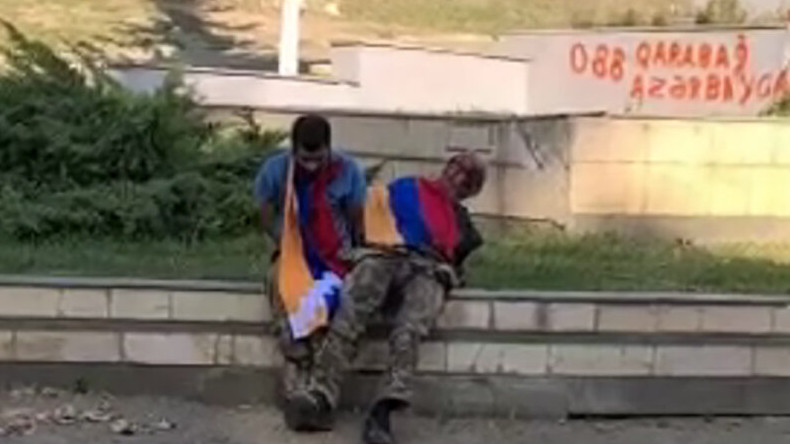
New Amnesty International report documents Azeri crimes against older Armenians in Karabakh conflict
A new report of Amnesty International, Last to Flee: Older People’s Experience of War Crimes and Displacement in the Nagorno-Karabakh Conflict, documents how older ethnic Armenians were disproportionately subjected to violence in the recent conflict, including war crimes such as extrajudicial executions, as well as torture and other ill-treatment while in Azerbaijani detention.
When active fighting broke out in Nagorno-Karabakh (Artsakh) in September 2020, older people in ethnic Armenian communities were almost invariably last to flee their homes, and were disproportionately impacted by violence as a result, Amnesty International says.
During the early stages of the conflict, men aged between 18 and 55 were typically mobilized to fight or to serve the war effort as volunteers. By the time Azerbaijani forces advanced on ethnic Armenian villages and towns, the only people remaining were often older people, and particularly older men.
Many older people encountered obstacles while trying to leave. Physical disabilities and health problems made it difficult for some to flee. In other cases, some older people with psychosocial disabilities or dementia found it difficult to comprehend the necessity or urgency of leaving. Others chose not to leave because they had strong attachments to their homes, or were reluctant to abandon land or livestock.
Older people who fled their homes have languished in displacement in the years since. They reported a lack of access to adequate housing and a loss of livelihoods, which further entrenched feelings of helplessness and isolation. They also suffer due to an extreme lack of mental health or psychosocial support services.
On the ethnic Armenian side, more than half of civilian deaths were among older people. Many interviewees told Amnesty International of extrajudicial executions by Azerbaijani forces. They described killings where victims were beheaded or shot at point-blank range, constituting the war crime of wilful killing. Some appeared to have been tortured prior to their deaths, and some corpses were mutilated afterwards.
Amnesty International was able to verify many of these cases through testimony from witnesses and relatives, as well as by reviewing and verifying death certificates, official forensic examinations undertaken by the Armenian authorities, and videos posted to social media.
Slavik Galstyan, 68, who lived with his family in the village of Mets Tagher and had a psychosocial disability, did not want to leave his home in October 2020. His body was found more than two months later. A death certificate issued by the Armenian authorities concluded that his death was caused by traumatic blood loss from gunshot wounds to his chest, stomach, and other internal organs.
His son, Ashot, identified the corpse at the morgue and said his father’s body appeared to have been mutilated. Ashot told Amnesty International: “His head was crushed. It was as if all the bones in his body had been broken. He was like a [slab of] meat.”
Sedrak Petrosyan, 90, was brutally kicked and beaten while in captivity, and his 56-year-old son went missing after being taken into Azerbaijani custody. He said: “I want to die. I wanted to die in prison but somehow I survived.”
Other interviewees reported beatings and other forms of physical violence – and in one case, a mock execution – and other ill-treatment. Older men appear to have been targeted because Azerbaijani soldiers believed they had participated in Armenia’s war effort during the 1990s.
“The Azerbaijani government must ensure that any members of its armed forces responsible for the war crimes committed – including willful killings, torture or inhuman treatment, or enforced disappearances – are prosecuted in fair trials,” said Laura Mills.
“While displacement can be devastating to all people, it poses particular challenges for older people. The Armenian government and de facto authorities in Nagorno-Karabakh must do more to ensure that older people are able to rebuild their lives on an equal basis with others. They must also reform their approach to humanitarian response, to ensure that older people are provided with much-needed support.”
Newsfeed
Videos






























